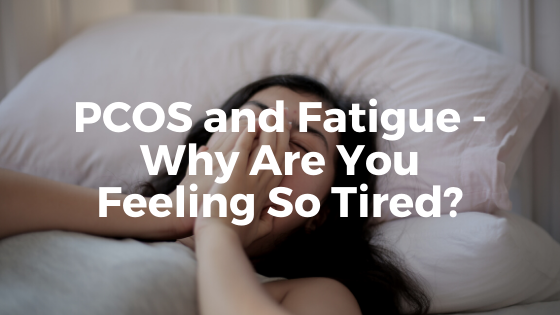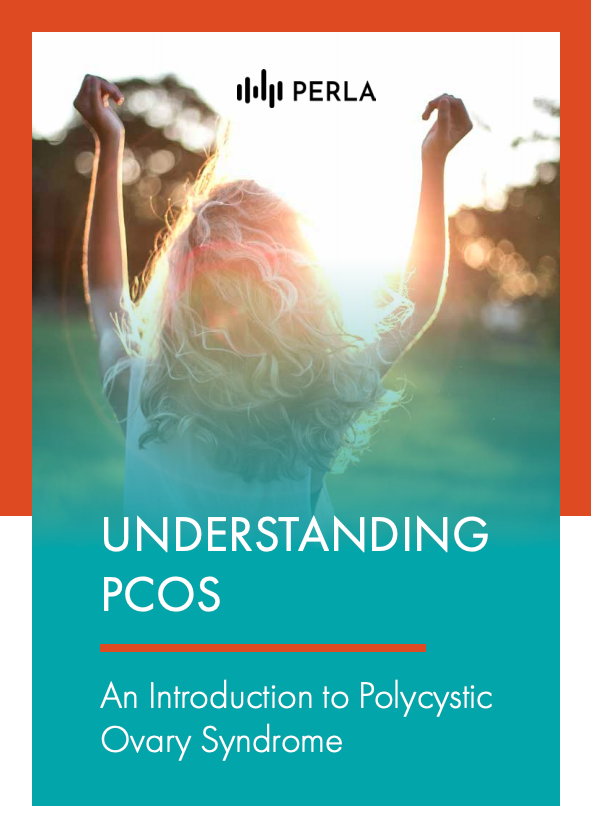Many of us are overworked, stressed, and sleep-deprived, so feeling frequently exhausted is not unusual. But for Women with PCOS, fatigue can be more debilitating, as it can cause memory impairment, poor performance at work, and an overall reduced ability to fulfill social and emotional responsibilities. In this article, you will learn why PCOS and tiredness often go hand in hand and what you can do about it.
Understanding PCOS and Fatigue
Fatigue is one of the most common complaints of women with PCOS. Normal tiredness can be relieved by sleep and rest. But excessive tiredness, also known as fatigue, can be overwhelming and seriously affect a person’s quality of life.1
Fatigue is also a common symptom of many other disorders. Your doctor will have to rule out other conditions that might be causing your fatigue and low energy. If it’s related to PCOS, your PCOS care team will develop a treatment plan to manage your symptoms.
Causes of Fatigue
The exact reason why people experience fatigue still eludes scientists. We know that inadequate sleep is strongly associated with fatigue, but it’s not the only reason. The reality of feeling tired is much more complicated and perplexing.
About 10% of people with chronic fatigue have an underlying medical disorder. The following are some of the common conditions that can cause fatigue.
Chronic Fatigue Syndrome (CFS)
Chronic fatigue syndrome, also known as, myalgic encephalomyelitis (ME) is a long-term illness that affects different systems of the body. It is characterized by severe fatigue, sleep problems, memory loss, headaches, and muscle pains.2 People with CFS often have overwhelming fatigue that is not alleviated by rest. Many of them are not able to do their usual activities and may remain bedridden or house-bound for long periods.3
Underactive Thyroid
The underproduction of thyroid hormones can lead to low energy levels. People with Hashimoto’s disease and hypothyroidism do not make enough thyroid hormones.4 These hormones control how your body uses energy, so low levels of thyroid hormones can make you feel sluggish, weak, and tired.
Anemia
Anemia has been linked to fatigue, weakness, shortness of breath, and sleep disturbance. You may develop anemia if you do not have enough iron in your blood or if you are suffering from a medical condition that causes blood loss, such as hemophilia and menorrhagia (heavy menstrual bleeding).
Nutrient Deficiencies
Vitamin or mineral deficiency can also cause frequent tiredness. B vitamins are vital for converting food into energy. Vitamin B12 (cobalamin) is often promoted as a cure for fatigue since this nutrient plays an important role in maintaining healthy blood cells, brain, digestive, and nervous system.5 Vitamin D deficiency has been associated with fatigue, weakness, headache, and musculoskeletal pain.6
Mental Health Issues
Burn-out is an occupational syndrome described as a state of physical, emotional, and mental exhaustion. You may experience burn-out if you are exposed to excessive and prolonged stress in your workplace. While it’s not a disorder or a mental condition,7 it can be considered a mental health issue.
Mood disorders, such as anxiety and depression, are common causes of fatigue. There is evidence to suggest that depression can precipitate chronic fatigue syndrome.8 About one-third of patients with major depressive disorder (MDD) who have responded to antidepressants still experience some symptoms of fatigue.9
Polycystic Ovary Syndrome (PCOS)
PCOS is not a direct cause of fatigue. The link between the two is unclear but not surprising, given that the syndrome is known to affect different systems of the body other than the reproductive organs. PCOS in itself is associated with a range of conditions that can cause fatigue.
What Can Cause Fatigue in PCOS?
Even though there is no clear answer yet on what exactly causes fatigue in PCOS, there are several likely causes that are contributing to it:
- Sleep disturbances: Chronic insomnia and obstructive sleep apnea are common with PCOS.10 It’s best to ask your doctor for further evaluation if your sleep quality is poor despite trying different remedies.
- Iron deficiency anemia: Women with PCOS who suffer from heavy periods can develop anemia. Ask your doctor for the right type of diet and if supplements to boost your iron levels would be appropriate for you.
- Insulin resistance: Up to 70% of women with PCOS have some form of insulin resistance.11 If your cells are not taking in enough glucose, they won’t have enough fuel. Insulin resistance can lead to uncontrolled glucose levels, which can also cause tiredness. A healthy balanced diet and exercise are recommended to prevent insulin resistance and diabetes.
- Clinical depression: PCOS women experience higher rates of anxiety and depression than women in the general population.12 This can lead to poor sleep and fatigue. Treating PCOS alone may alleviate depressive symptoms.
- PCOS medications: Metformin, a drug used to reduce androgens and improve insulin resistance in women with PCOS, is linked with Vitamin B12 deficiency.13 Lack of B12 causes constant tiredness. Do not stop your medication without advice from your doctor. Consult your PCOS care team to discuss your symptoms with them, and together you can find a solution.
Conclusion
Fatigue, or excessive tiredness, affects many women with PCOS. It currently is not clear what exactly causes it, and research about the connection between fatigue and PCOS is still going on. If you are affected by fatigue, make sure to mention it to your doctor or PCOS care team, as they can help you best.
Sources:
- NHS Choices. Sleep and Tiredness. NHS. Published 2019. https://www.nhs.uk/live-well/sleep-and-tiredness/10-medical-reasons-for-feeling-tired/
- Jackson A. Understanding Chronic Fatigue Syndrome. Allen & Unwin; 2000.
- CDC. Myalgic Encephalomyelitis/Chronic Fatigue Syndrome (ME/CFS). Centers for Disease Control and Prevention. Published 2019. https://www.cdc.gov/me-cfs/index.html
- NIDDK. Hashimoto’s Disease | NIDDK. National Institute of Diabetes and Digestive and Kidney Diseases. Published September 2017. https://www.niddk.nih.gov/health-information/endocrine-diseases/hashimotos-disease.
- NIH. Office of Dietary Supplements – Vitamin B12. Nih.gov. Published 2017. https://ods.od.nih.gov/factsheets/vitamin%20B12-HealthProfessional/
- Nowak A, Boesch L, Andres E, et al. Effect of vitamin D3 on self-perceived fatigue. Medicine. 2016;95(52):e5353. doi:10.1097/md.0000000000005353
- WHO. Burn-out an “occupational phenomenon”: International Classification of Diseases. www.who.int. Published May 2019. https://www.who.int/news/item/28-05-2019-burn-out-an-occupational-phenomenon-international-classification-of-diseases
- Harvey SB, Wadsworth M, Wessely S, Hotopf M. The relationship between prior psychiatric disorder and chronic fatigue: evidence from a national birth cohort study. Psychological Medicine. 2007;38(07). doi:10.1017/s0033291707001900
- Fava M. Symptoms of fatigue and cognitive/executive dysfunction in major depressive disorder before and after antidepressant treatment. J Clin Psychiatry. 2003;64(suppl 14):30–34.
- Fernandez RC, Moore VM, Van Ryswyk EM, et al. Sleep disturbances in women with polycystic ovary syndrome: prevalence, pathophysiology, impact and management strategies. Nat Sci Sleep. 2018;10:45-64. Published 2018 Feb 1. doi:10.2147/NSS.S127475
- Marshall JC, Dunaif A. Should all women with PCOS be treated for insulin resistance?. Fertil Steril. 2012;97(1):18-22. doi:10.1016/j.fertnstert.2011.11.036
- Månsson M, Holte J, Landin-Wilhelmsen K, Dahlgren E, Johansson A, Landén M. Women with polycystic ovary syndrome are often depressed or anxious—A case-control study. Psychoneuroendocrinology. 2008;33(8):1132-1138. doi:10.1016/j.psyneuen.2008.06.003
- Aroda VR, Edelstein SL, Goldberg RB, et al. Long-term Metformin Use and Vitamin B12 Deficiency in the Diabetes Prevention Program Outcomes Study. J Clin Endocrinol Metab. 2016;101(4):1754-1761. doi:10.1210/jc.2015-3754


